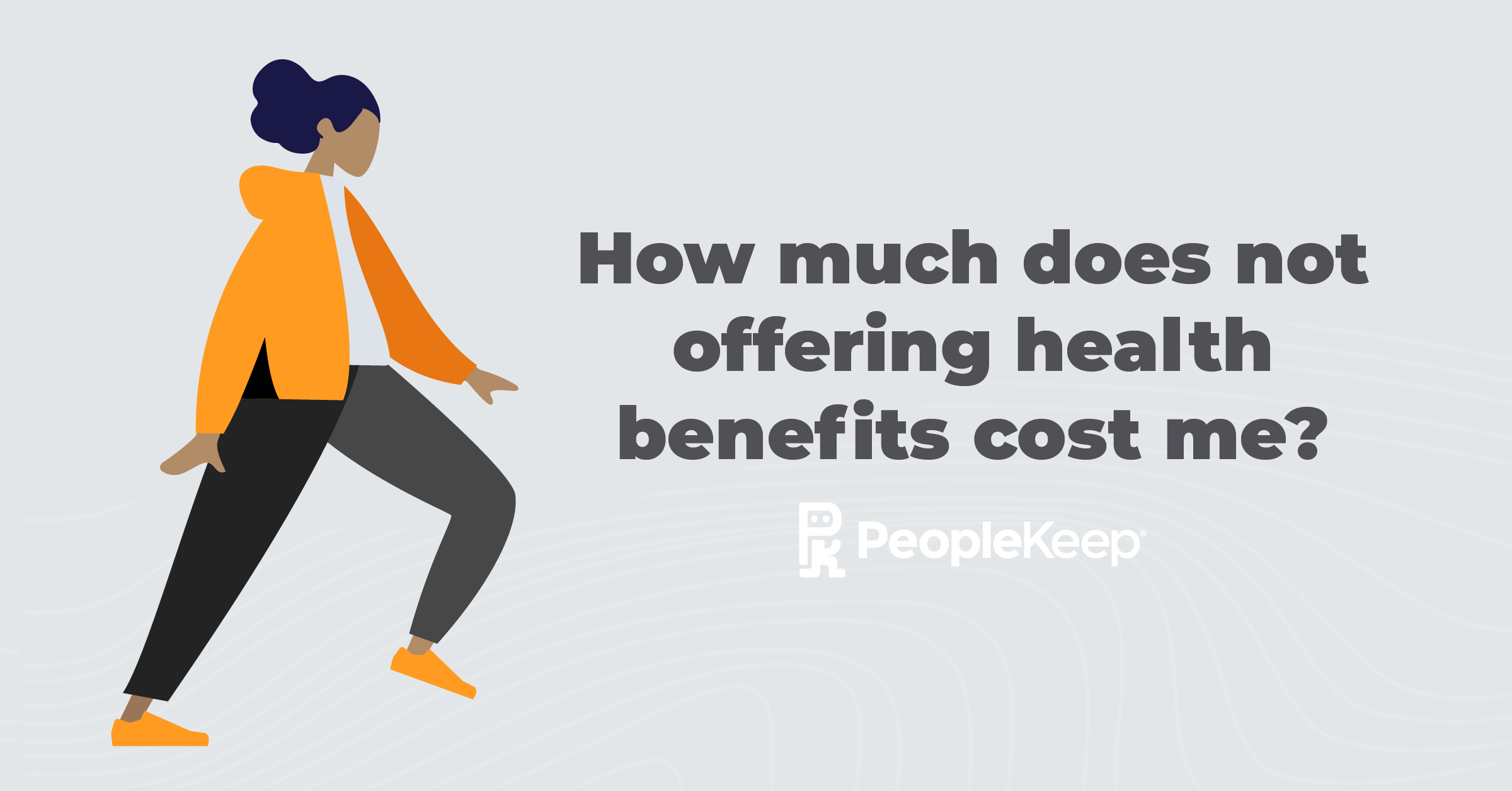Benefits you should offer a nanny or caregiver
By Elizabeth Walker on January 2, 2024 at 9:00 AM
As a household employer, providing your nanny or caregiver competitive wages and a robust benefits package is essential. While not required by law, employee benefits show that you prioritize your nanny’s health and well-being.
Offering benefits helps you attract and retain the perfect nanny to care for your loved ones. They also help them avoid burnout, make their nanny job more enticing, and encourage them to stick around for the long haul.
When drafting your nanny's offer letter, knowing which benefits make an appealing compensation package is essential. To get you started, we’ll review the typical benefits families offer to nannies and how you can provide them.
Takeaways from this blog post:
- Providing competitive wages and a robust benefits package is important for household employers to attract and retain the perfect nanny or caregiver.
- Common benefits offered to nannies and caregivers include health benefits, guaranteed pay, overtime, paid time off, and holidays.
- Offering benefits shows that employers prioritize their nanny or caregiver's health and well-being and can help prevent burnout and encourage long-term commitment.
What are common nanny and caregiver benefits?
According to Zippia1, more than 169,633 nannies work in the U.S. However, many household employers don’t offer employee benefits to nannies outside their standard compensation because no federal law requires it.
Nanny benefits vary from state to state, even from family to family. You can design your benefits package based on your nanny’s specific needs. However, the sections below highlight five standard benefits employers typically offer to domestic workers as part of their nanny contract.
1. Health insurance
Health insurance coverage is a popular benefit nannies and caregivers request in their compensation packages. While traditional health insurance can be challenging to offer as a small employer, you have a few alternatives.
Some nannies may appreciate a flexible health reimbursement benefit, like a health reimbursement arrangement (HRA). The qualified small employer HRA (QSEHRA) works well for nannies because it’s specifically for employers with fewer than 50 full-time equivalent employees (FTEs). That means you can offer a QSEHRA if you only have one W-2 employee.
Employers make QSEHRA contributions on a pre-tax basis. Therefore, they won’t impact your nanny’s annual wages during tax season.
However, if your nanny isn’t a W-2 employee or qualifies for premium tax credits, offering a monthly health stipend might be a better option. A stipend allows them to spend their allowance on an individual health insurance plan and other medical items while also collecting their full tax credit. Meanwhile, with a QSEHRA, your nanny can only receive premium tax credits if your benefit isn’t affordable.
No matter which one you offer, these easy-to-administer options will improve your nanny’s health and wellness, boost your benefits package, and reduce your overall health insurance costs.
2. Guaranteed pay and overtime
Guaranteed hours protect your nanny’s income when childcare services aren’t required, such as during a family vacation. They work by ensuring the nanny receives their regular wages for a guaranteed number of hours during the work week.
Guaranteed pay also protects the employer, as they’re not at risk of losing their nanny to another employer due to loss of income while their services aren’t requested.
The Fair Labor Standards Act (FLSA)2 considers domestic employees, like professional nannies and caregivers, non-exempt workers. Therefore, they’re entitled to overtime pay. Full and part-time nannies who provide childcare for 40 or more hours a week should receive 1.5 times their hourly rate for each overtime hour worked.
Live-in nannies typically don’t receive overtime pay, but it varies from state to state, so check your state’s laws if you have one.
3. Paid time off and paid holidays
While a few states require some paid time off (PTO), there’s no federally mandated time off policy, so offering it to your nanny is a great perk.
The average paid vacation time is five to 15 days a year, but you can determine how much time to offer based on your family and your caregiver’s needs. You can also decide if the PTO will roll over annually or if it will reset each calendar year. Depending on where you live, your state may require you to payout PTO if your nanny resigns3.
The traditional way of offering paid time off doesn’t include major holidays. So unless you decide to roll all paid leave types—like vacation time, sick time, personal time, holidays, and more—into one category, you should consider offering them as a separate benefit.
It’s typical for employers to offer either all federal holidays or five to seven holidays of their choice. However, some states have rules about overtime on holidays, so be sure to check your state’s laws.
4. Paid sick days
Paid sick days are important for any employee. But they’re essential for nannies and caregivers because they work closely with your child and elderly relatives. Nannies must ensure they’ll get paid if they’re ill and must take a sick day to recover. If you offer your nanny sick time, it’s good to have backup care available, such as daycare.
There are currently no federal laws requiring paid sick leave, but some states and cities4 have their own regulations on the number of days an employer must offer, the method of accrual, and how employees can use the leave.
5. Mileage reimbursement
If your nanny uses their personal car for your household services, like errands, or to drive your child to school, you should consider a mileage reimbursement benefit. The IRS has a standard annual mileage rate5 to help you calculate how much reimbursement you should allow.
If your nanny is driving your kids in your family car, there’s no reimbursement needed unless your nanny pays for gas while using it during their duties.
Federal law doesn’t require mileage reimbursement. However, some states require reimbursement for the miles your nanny drives in their own car while working, so check your state’s requirements.
Why you should offer benefits to your nanny or caregiver
These days, hiring the best nanny candidate or keeping your preferred caregiver requires more than offering competitive wages. The nanny industry is competitive, and getting quality nanny care means being willing to provide benefits to attract and retain good employees. Great benefits can give you an edge over other families looking to hire a household worker.
The following are some advantages to providing benefits to your nanny or caregiver:
- It helps your job listing stand out from your competitors.
- It attracts more experienced candidates from a reputable nanny agency.
- It shows your nanny you value their work, health, and well-being.
- It improves job satisfaction and morale.
- It incentivizes your nanny to stay with your family long-term.
Remember, nannies are professionals at what they do. And like other professionals, nannies expect standard employment benefits with their job.
How to find a nanny
Having a nanny can make your life easier, but it can be hard to find a great one. You can start your search by asking friends and family members for recommendations, especially if they already have a nanny they love.
Several caregiver websites can also help. These sites typically list several prescreened nannies outlining their experience, availability, salary requirements, background checks, and references to help you determine if they would be a good fit. You can also search for potential candidates on local message boards and nanny placement agencies.
How PeopleKeep can help you provide benefits to your nanny or caregiver
Offering benefits is an excellent way to improve your hiring efforts. In today’s tough job market, nannies seek employer-sponsored benefits more than ever. For families, this means providing benefits is a necessity.
Luckily, cost-effective and tax-advantaged benefits options are available, and PeopleKeep can help. By offering a pre-tax health benefit, such as an HRA, your childcare provider receives a formal health benefit, and you can reduce your overall tax liability.
Qualified small employer HRA (QSEHRA)
A QSEHRA is an IRS-approved, tax-free health benefit that you can use to reimburse a W-2 household employee for individual health insurance premiums and other out-of-pocket medical expenses. More than 200 qualified healthcare expenses listed in IRS Publication 502 are eligible for reimbursement with a QSEHRA.
Like other HRAs, the QSEHRA’s reimbursement structure is simple. The employer sets an allowance for their nannies to spend on medical items. When the nanny makes a qualified purchase, you review the expenses and, if approved, reimburse them for their healthcare costs up to their available allowance.
As an employer, you can determine if you want to set up your QSEHRA to reimburse your nanny for health insurance premiums only or premiums and qualified out-of-pocket expenses.
It’s important to note that QSEHRAs have maximum contribution limits set annually by the IRS. However, there are no minimum contribution requirements. Additionally, if you have multiple full-time caregivers, you must offer the HRA to all of them at the same allowance amount, even if they don’t want to use it.
Advantages of providing your nanny a QSEHRA health benefit:
- Employer contributions to a nanny’s HRA are tax-deductible.
- Nannies can purchase the individual health insurance policy that meets their needs on a health insurance marketplace or a private health exchange, like a broker.
- Reimbursements are income tax-free as long as your nanny has health insurance coverage that meets minimum essential coverage (MEC).
- Employers can set a budget-friendly monthly allowance.
- Funds can carry over from year to year if allowed by the employer.
- You can only offer monthly rollovers if you’re administrating your QSEHRA through PeopleKeep.
Managing a formal health insurance benefit on your own can seem daunting as a household employer. But with an HRA administrator like PeopleKeep, we’ll do all the heavy lifting for you. We review documentation, handle HRA compliance, and keep receipts on file according to IRS regulations.
Conclusion
As a parent, your nanny or caregiver is an integral part of your family. While household employers have no legal obligation to offer benefits, most find that providing benefits is essential to a stable and long-lasting relationship with your domestic worker.
At PeopleKeep, we’re here to provide you with straightforward benefits for nannies. With a QSEHRA, you can help your nanny offset the cost of health insurance, their monthly premiums, and other expenses.
This article was originally published on May 4, 2022. It was last updated on January 2, 2024.
1. https://www.zippia.com/nanny-jobs/demographics/
2. https://www.dol.gov/agencies/whd/flsa
3. https://www.paycor.com/resource-center/articles/pto-payout-laws-by-state/
4. https://www.paycor.com/resource-center/articles/paid-sick-leave-laws-by-state/
5. https://www.irs.gov/tax-professionals/standard-mileage-rates
Check out more resources
See these related articles

Should you offer benefits to a 1099 employee?
Find out if you should offer benefits to 1099 employees. Learn the differences in benefit offerings between contractors and full-time employees.

How much does not offering health benefits cost me?
Not offering employee health benefits can cost you in turnover, recruitment, and productivity. Learn the financial risks and smarter benefit alternatives.

Why you should offer small business employee benefits
Discover why offering employee benefits is essential for small businesses. Learn how benefits can boost retention, productivity, and growth.



